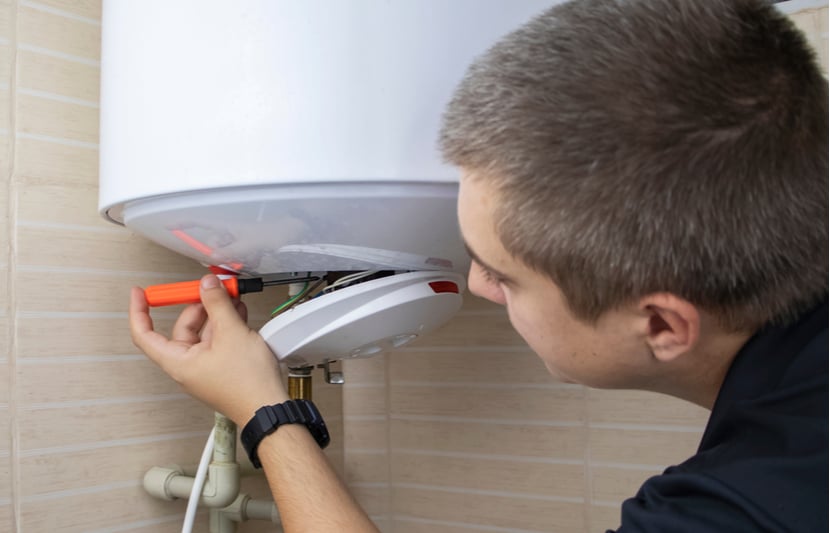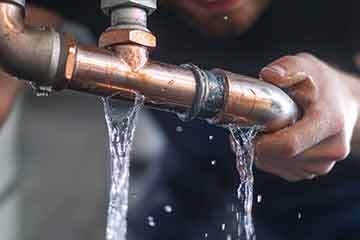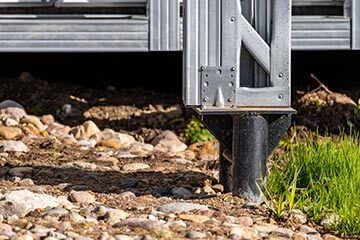When your boiler breaks down it can throw a real spanner in the works. Your boiler might start making strange noises, or stop giving you hot water. Boiler breakdown cover can help cover repair costs.
You can get it as a standalone policy, which covers callout charges, emergency repairs, labour and spare parts. But you might already have some kind of boiler cover under your home insurance policy.
It can be a useful extra to have, especially for boilers not covered by warranties, and could help save you considerable costs.
Let's look at your options.

Is my boiler covered by my home insurance policy?
Boiler breakdown repairs are usually included in your home insurance policy as part of a home emergency cover add-on.
For example, some insurers pay towards the cost of a new boiler if it's beyond economic repair, usually in the range of £250 to £500.
If you can claim on your home insurance policy, call your insurance provider they should arrange for an engineer to come and look at your boiler.
There are usually exclusions with this kind of cover, such as:
- Boilers over a certain output - for example 60kW
- Boilers over a certain age - for example, 15 years old
- Boilers that haven't been serviced within a specific time frame
How often should I have my boiler serviced?
To keep your boiler in good condition and to meet most insurance requirements, you need to service your boiler regularly - British Gas recommends an annual service.
As well as ensuring it's working properly, regular boiler services can help maximise the efficiency of the boiler.
Whenever you have your gas boiler serviced, it's essential that you use the services of a Gas Safe-registered engineer.
How is boiler cover different from a home emergency insurance policy?
Home emergency policies don’t usually cover:
- Ongoing maintenance
- Annual servicing
- Replacement boilers
- Repairs above a certain number
Boiler breakdown cover for landlords
Do landlords need boiler breakdown cover?
No, you're not legally required to get boiler breakdown cover if you're a landlord. But it's an add-on that gives you peace of mind if something goes wrong.
If you're comfortable paying for any repairs yourself, then you don't necessarily need to worry about it.
For more information on what you’re required to do as a landlord, see our guide to safety requirements for landlords.
Does landlord insurance cover the boiler?
It's unlikely that a standard landlord insurance policy covers your boiler.
You can usually get boiler breakdown cover as an add-on to your policy at an extra cost. Get in touch with your insurer to see if they offer it.
When you compare landlord insurance with us, you get the option to add landlord home emergency cover. This offers some protection for your boiler as well as 24-hour assistance for emergencies.
How much is landlord boiler cover?
The cost of landlord boiler cover depends on the policy and the insurer but you can usually pay a flat monthly or annual fee for the policy. It’s always worth doing a boiler breakdown cover comparison to make sure you find the best policy for you, at the right price.
Always check before you buy a new policy that you’re not already covered. Boiler breakdown cover might be included in your standard home insurance as part of a home emergency policy.
What warning signs should I look out for that my boiler might be breaking down?
As wear and tear occurs with use, there are some signs you can be aware of that might indicate a potential issue:
- A boiler suddenly getting noisy or making unusual noises
- Not getting hot water as reliably as usual
- A boiler not turning on when it should
- A boiler suddenly going on and off of its own accord
- Not getting the usual level of heat from your boiler
On average, modern boilers tend to last for between 10 and 15 years.
Having a regular look at your boiler as part of a system of monthly maintenance checks for your home can help you spot issues in advance.
But although it's fine to look out for potential warning signs, don't ever try to fix your boiler yourself – always hire a tradesperson.
It can be dangerous if you're not a trained Gas Safe engineer, plus it could result in invalidating any insurance policy you have.
If you have a carbon monoxide detector in your home – you should do – and it starts going off, act immediately and get your boiler looked at.
Carbon monoxide leaks are extremely dangerous and potentially life-threatening.
Boiler cover restrictions
There might be a limit on the number of claims you can make in a year and a limit on the time that's spent trying to fix a problem.
It’s also likely that you’ll have to wait before you make a claim. For example, you might not be covered if your boiler breaks down within 30 days of getting a policy.
Older boilers and different types of boiler might not be covered, so check with your provider before signing up for a policy. You may be able to arrange cover for the specific type of boiler you have, for example, an oil or electric boiler.
Also, you can't get cover for a boiler that's already broken.
Is central heating cover included in my home insurance policy?
Central heating cover goes beyond just your boiler. It usually covers everything from radiators, pumps, pipes, hot water tanks and thermostats.
We don’t offer central heating cover as a standalone policy. But you can often add it to your home insurance as an optional extra.
Here’s what central heating cover usually includes:
- Your boiler and its key components
- Pipes connected to your heating system
- Heating pumps
- Hot water system
- Thermostats and heating controls
It’s there to help with surprise breakdowns, repairs, and sometimes replacement parts. You might not be covered if there’s wear and tear, existing issues, or if the system hasn’t been properly looked after.
Also, your type of heating system can make a difference. Whether your home runs on gas, electric or oil, make sure your cover matches your setup.
The type of heating system you have, such as gas, electric or oil, can affect what’s covered. Some policies might not include certain systems, so it’s important to check that your insurance works for the way your home is heated.
If you don’t fancy being left in the cold, central heating cover’s worth considering. Just make sure you know what’s covered.







